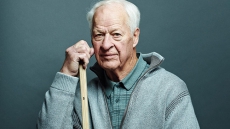US researchers say that they have identified the first step in the origin of pancreatic cancer.
The scientists have described the molecular steps necessary for acinar cells in the pancreas - the cells that release digestive enzymes - to become precancerous lesions.
"Pancreatic cancer develops from these lesions, so if we understand how these lesions come about, we may be able to stop the cancer train altogether," said Peter Storz, cancer biologist at at Mayo Clinic, Jacksonville.
"The need for new treatment and prevention strategies is pressing," pointed out Storz.
Pancreatic cancer is one of the most aggressive human cancers as symptoms do not occur until the advanced stage.
The scientists studied pancreatic cells with Kras genetic mutations as over 95 percent of pancreatic cancer cases have a Kras mutation.
Kras produces a protein that regulates cell division, and the gene is often mutated in many cancers.
Kras proteins in the acinar cells induce the expression of a molecule, ICAM-1, which attracts macrophages, a specific kind of immune cells, found researchers.
These macrophages release a variety of proteins, including some that loosen the structure of the cells, allowing acinar cells to morph into different types of cells.
"We show a direct link between Kras mutations and the inflammatory environment that drive the initiation of pancreatic cancer," noted Storz.
The process can be halted in laboratory mice, said Storz.
Storz noted that a neutralizing antibody that blocks ICAM-1 has already been developed.
"Understanding the crosstalk between acinar cells with Kras mutations and the microenvironment of those cells is the key to developing targeted strategies to prevent and treat this cancer," noted Storz.
The study appeared in Cancer Discovery.




